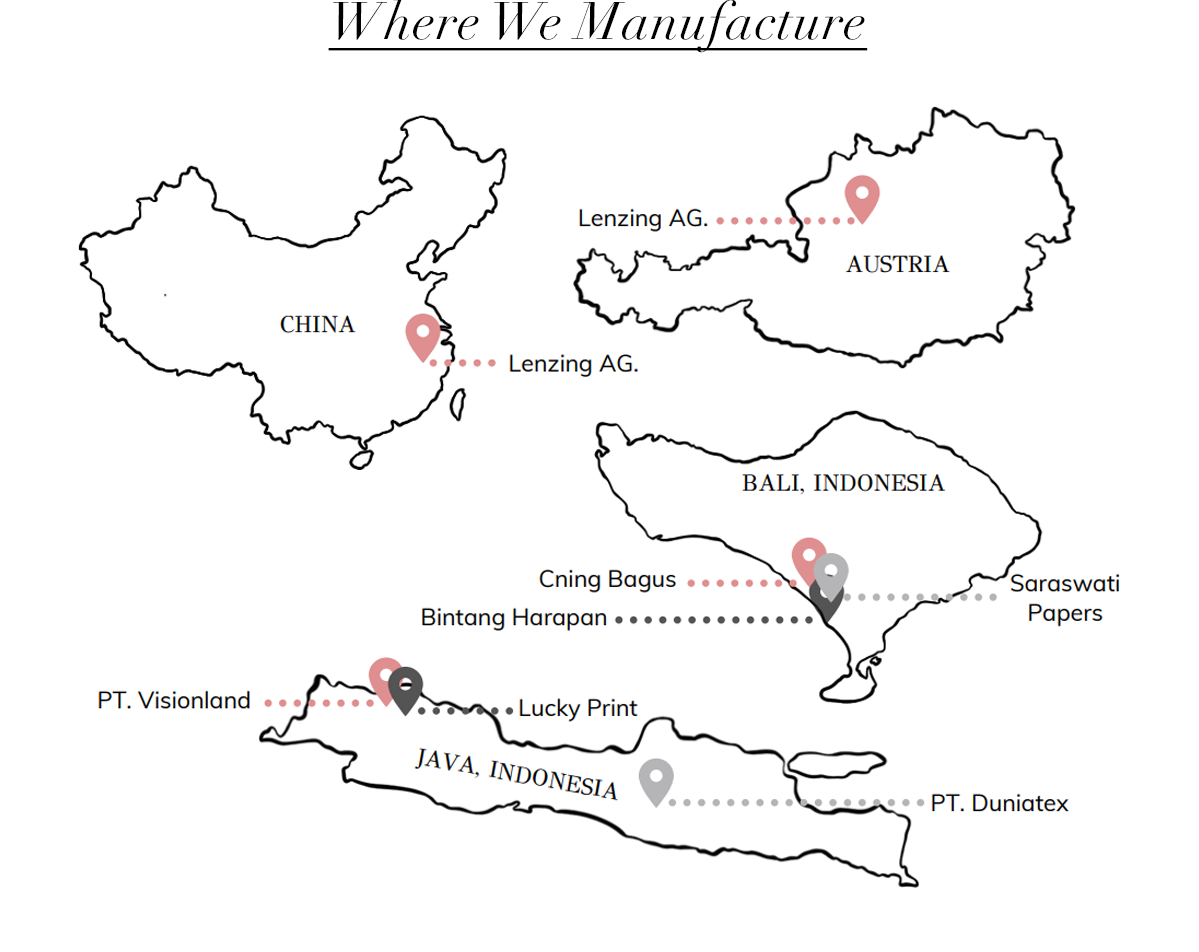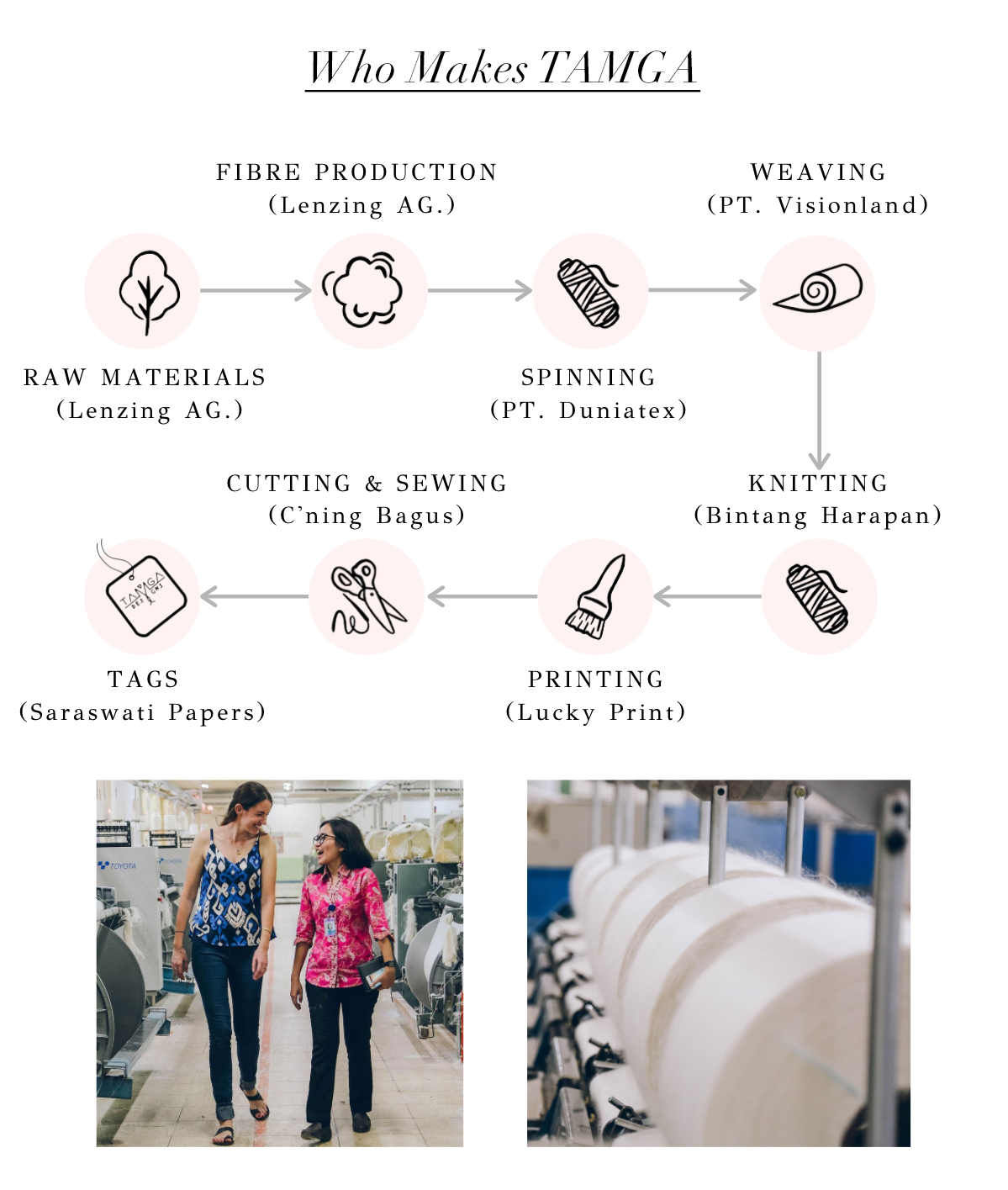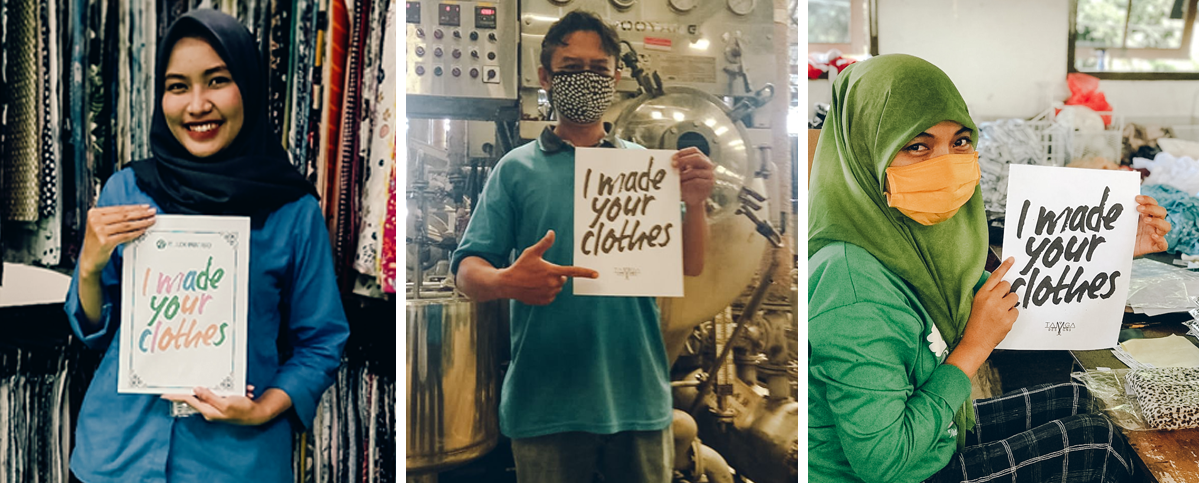This years marks 8 years since the tragic Rana Plaza garment factory collapse in Dhaka, Bangladesh. On April 24th, 2013, 1,138 men and women lost their lives and thousands more were injured, making it one of the largest garment industry disasters in history.
As a result, Fashion Revolution was born - a not-for-profit global movement focused on the need for greater transparency in the fashion supply chain. Fashion Revolution hits close to home for us at TAMGA. Our co- founders Eric and Yana arrived to Dhaka shortly after the tragedy, and over 2.5 years of living in Bangladesh they saw first-hand the realities of fashion manufacturing and the awful impact it can have on people and the planet.
We started TAMGA because we believe in a brighter future. One where transparency, sustainability and ethical supply chains are the norm. And it all starts with a single question - 'Who Made My Clothes?'.

Who Makes Your TAMGA Garments
In the early days of building our supply chain, we spent a lot of time seeking out partners and manufacturers who shared our values and vision for a better fashion industry. It took many months of cold-calling, flying all over South East Asia, showing up on the doorsteps of factories and fabric mills, but we got there eventually! Our supply chain is made up of incredible partners who manufacture ethically and responsibly and share every step of the process with us (which we get to share with you!). There's a lot more to a garment than just the sewing, so we make a point of breaking down the whole story - from the raw material of our sustainable fabrics, to the finished, packaged and tagged TAMGA garment that arrives at your door step.


Every partner that we work with signs a code of coduct we've developed based on ILO conventions and our experience working on garment industry improvement projects in Bangladesh. Our team also visits our sewing factory, fabric mills and print mills in person, ensuring that the code of conduct is understood and honoured, and working with the makers on our designs. From wages, to health insurance and workplace safety, full transparency is a must for us and has helped us build great business relationships with our suppliers over time.
What You Can Do After Fashion Revolution Week
Luckily Fashion Revolution is a global movement that goes beyone one week in April! For 365 days a year we can all do our part in being informed consumers and demanding that brands to do better by their makers. Beyond asking #whomademyclothes, it's also important to ask brands 'Who harvested the fibres?', 'Who spun them into fabric?', 'Who dyed the fabric?' and so on. There are many steps in manufacturing a single garment (up to 100 people directly touch any piece of clothing you buy) and asking these tough questions will hopefully encourage brands to dig deeper into their supply chain. Check out this Ethical Fashion Shopper's Checklist if you're looking for some guidance!
Beyond supporting transparent and ethical brands year-round, it's also important to keep wearing, mending and loving the clothes you already own! After all, wearing the garment that is already in your closet is the most sustainable thing we can all do.
Together, we as consumers and brands have all the power in improving the fashion industry (even if our contribution sometimes feels small)! Little choices can add up to make a big difference over time, so let's use our voices and dollars to vote for a brighter future.







Leave a comment